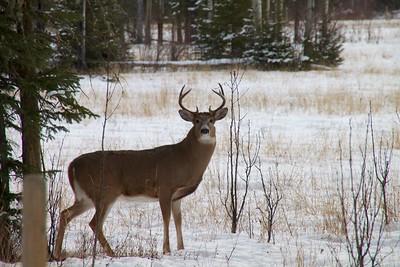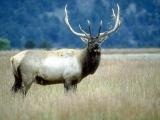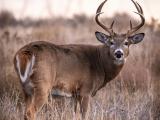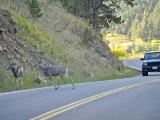A $1.7 trillion spending package awaiting US President Joe Biden's signature earmarks $70 million to help wildlife agencies combat chronic wasting disease (CWD), Outdoor Life reports.
If signed, the bill will set aside $35 million annually for CWD research and an equal amount for management, including emergency rapid-response funds. States and tribal wildlife agencies, which have struggled to contain the spread of the disease, could then apply for funding for mitigation strategies such as testing.
A step toward sustainability
CWD is a slow-acting fatal prion disease that damages the brain and spinal cords of cervids such as deer, moose, elk, and reindeer. It is spread through prion proteins, similar to bovine spongiform encephalopathy, or "mad cow disease," and Creutzfeldt-Jakob disease in humans. The prions, which can persist in the environment for years and withstand extreme heat, radiation, and formaldehyde, are believed to spread through animal-to-animal contact (eg, saliva, urine, feces).
While CWD hasn't jumped to humans, the threat worries scientists, wildlife managers, and hunters.
The CWD funding was recently added to the spending package, which had passed the House of Representatives by a 393-to-33 vote in December 2021. Republican Sen. John Hoeven of North Dakota introduced a Senate version in April 2022 to broad bipartisan support, but it was stopped by Kentucky Republican Sen. Rand Paul earlier this month. The House passed the bill on Dec 23 by a vote of 225 to 201.
While CWD hasn't jumped to humans, the threat worries scientists, wildlife managers, and hunters.
The overall package would fund national security efforts, domestic spending, aid to war-torn Ukraine, and other types of conservation efforts (eg, National Wildlife Refuge System, North Americans Wetlands Conservation Act, sagebrush habitat projects).
Torin Miller, National Deer Association senior policy director, told Outdoor Life that this would be the first time money for CWD wouldn't have to be scraped together from other budgets. "States [were] redirecting funds from other important budget areas at the expense of other wildlife to manage CWD, and [that was] not sustainable,” he said.
Found in at least 30 states
CWD was first identified in 1967 in a captive mule deer living at a research facility in Colorado and was first discovered in a wild cervid in 1981. It is a growing problem, spreading from 5 US states and 1 Canadian province in 2000 to at least 30 states and 4 provinces today. Other affected countries include Finland, Norway, South Korea, and Sweden.
Since 1997, the World Health Organization (WHO) has recommended against human consumption of animals with prion disease. The US Centers for Disease Control and Prevention (CDC), Health Canada, and many provincial and state health and natural resources agencies advise people to avoid eating the meat of any CWD-positive animal.
Symptoms observed in CWD-positive cervids include dramatic weight loss, gait problems, excessive salivation and urination, teeth grinding, a slumped head, droopy ears, and a lack of fear of people.



















